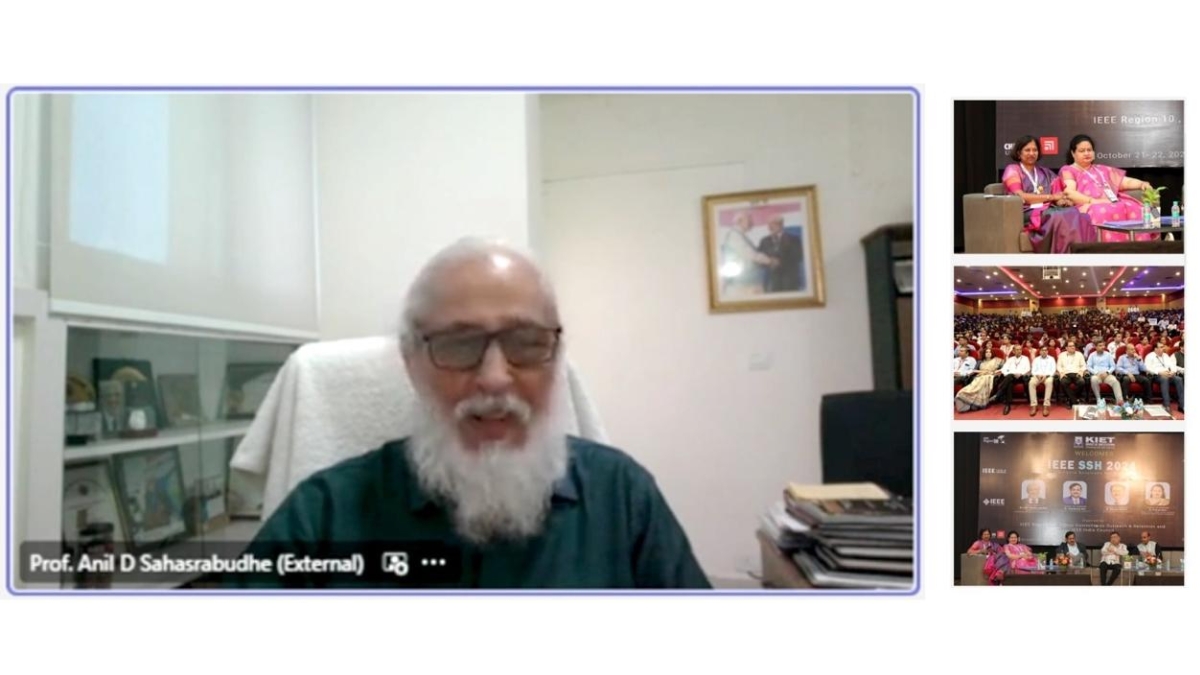Pavitra Pradip Walvekar on Finfluencers: Empowering Youth or Fueling Financial Misinformation?
New Delhi [India] October 10: Social media has turned the world upside down, transforming everything from how we connect with friends to how we manage our money, and the finance industry is riding this wild wave of change. Gone are the days when financial advice came wrapped in stuffy jargon from a suit behind a [...]

New Delhi [India] October 10: Social media has turned the world upside down, transforming everything from how we connect with friends to how we manage our money, and the finance industry is riding this wild wave of change. Gone are the days when financial advice came wrapped in stuffy jargon from a suit behind a mahogany desk; now, it’s all about scrolling through your feed and stumbling upon a reel that explains stock trading in under a minute.
Enter the era of “finfluencers,” those charismatic social media stars who have swapped traditional finance for flashy reels and catchy hashtags, making money talk feel less like a lecture and more like a lively chat over coffee.
They’re not just sharing tips; they’re turning complex financial concepts into bite-sized nuggets that even a child could understand. But as the finfluencer phenomenon gains momentum, a darker undercurrent emerges. With anyone armed with an internet connection now able to upload their financial musings, the landscape has taken a troubling turn.
Pavitra Pradip Walvekar, the Pune-based promoter-director of Kudos Finance and Investments Private Limited, offers a candid take on the finfluencer game, complete with a word of caution.
The rise of finfluencers in India initially seemed like a breath of fresh air, democratizing financial knowledge and making investing accessible to the masses. However, as their popularity skyrocketed, so did concerns about the potential pitfalls associated with this trend.
“For many Millennials, the “finance talk” was more of a ghost than a conversation—something that simply didn’t happen around the dinner table. Instead, financial wisdom often came from the whispers of friends or the slick pitches of agents eager to sell policies, leaving a generation navigating the complexities of money almost blindfolded.” Believes Pavitra Pradip Walvekar.
“Fast forward to today, and everything has changed! Millennials and Gen Z have flipped the script, trading in those awkward family chats for engaging videos from their favorite YouTubers. With just a click, they can access a treasure trove of financial knowledge, from investment strategies to insurance policies, all presented in a relatable and entertaining way.” Walvekar adds.
In a country where only around 27% of the population is financially literate, the need for robust financial education has never been more pressing. Alarmingly, just 16.7% of Indian students possess a basic understanding of finance and money management, highlighting a significant gap in knowledge that could hinder their economic potential.
This lack of financial literacy is particularly concerning in the context of India’s rapid digital transformation and growing internet penetration, which currently stands at around 50%. With so many individuals now accessing financial information online, there is an urgent need to ensure that this knowledge is accurate and beneficial.
One of the most common issues with the finfluencer phenomenon is the promotion of pump-and-dump schemes, where some finfluencers hype up certain stocks to inflate their prices and then sell off their holdings, leaving unsuspecting followers with worthless shares. This tactic often involves misleading claims about potential returns, creating a false sense of urgency among followers eager to jump on the bandwagon.
Another prevalent scam involves misleading endorsements. Many finfluencers have been accused of promoting investment products or services without disclosing their financial ties to those companies, effectively acting as unregistered brokers. This lack of transparency can lead to significant financial losses for followers who trust these influencers’ recommendations without realizing they may be motivated by personal gain rather than genuine advice.
Additionally, there are instances of fake courses and memberships, where finfluencers charge hefty fees for educational content that often lacks substance or legitimacy. For example, some influencers have been found offering premium memberships that promise exclusive insights and higher profits, only for participants to discover that the information provided is either outdated or entirely inaccurate.
Pradip Walvekar says “In the world of finfluencers, trust is a commodity that must be earned through transparency, accountability, and a genuine commitment to empowering investors. Without these foundations, the financial advice they provide becomes nothing more than a house of cards, ready to collapse at the first sign of scrutiny.”
To tackle the growing concerns surrounding unregistered financial influencers, or finfluencers, the Securities and Exchange Board of India (SEBI) has introduced several regulatory measures. SEBI has prohibited regulated entities, such as brokers and mutual funds, from associating with unregistered finfluencers to prevent the spread of unregulated financial advice.
Additionally, any finfluencer wishing to provide investment-related guidance must now register with SEBI, ensuring compliance with strict disclosure and disclaimer guidelines. In a significant move to protect investors, SEBI has also requested the removal of over 15,000 pieces of content linked to unregulated entities from various digital platforms. These actions underscore SEBI’s commitment to enhancing market integrity and safeguarding investors from misleading information in the digital landscape.
Pavitra Pradip Walvekar Opines, “While regulation is crucial, the true antidote lies in fostering a culture of financial literacy that equips people with the knowledge and resilience to navigate the complex world of investments. Only then can we truly safeguard the financial futures of those who have already suffered the consequences of misinformation and greed”

































































